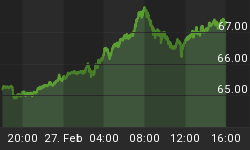...ECB Exposure to Greece Tops €100 Billion; Greece Out of Cash by April 20
ECB Denies it is Blackmailing Greece
Yesterday, Mario Draghi Hit Back at QE Hawks and denied the ECB was blackmailing Greece.
Critics of QE, such as Bundesbank president Jens Weidmann and the head of the Dutch central bank, Klaas Knot, argue the policy, which helps lower the cost of borrowing for member states, will allow countries such as France and Italy to shirk unpopular reforms.
The ECB president told lawmakers it was "very dubious" that a fall in the cost of borrowing for member states automatically weakened the appetite for structural reforms. He said: "Do you really think a high level of interest rates would form an incentive for a government to improve its education system, or judiciary, or electoral system?"
Mr Draghi denied accusations that the ECB was blackmailing Greece. "The ECB has €104bn of exposure to Greece. This is equal to 65 per cent of Greek GDP, which is the highest exposure in the eurozone," he said. "So what sort of blackmail is this?"
The denial follows the leaking of a letter from Greek prime minister Alexis Tsipras to German chancellor Angela Merkel. In the letter, Mr Tsipras called for the ECB to reintroduce a waiver that would allow Greek banks to use their sovereign's debt as collateral to secure cheap loans from the central bank's regular auctions.
Screws Tighten
Today, the Wall Street Journal reports ECB Tells Greek Banks Not to Boost Exposure to Athens Government's Debt.
The European Central Bank has instructed Greece's biggest banks to refrain from increasing their exposure to Greek government debt, according to people familiar with the matter.
The move raises pressure on the cash-strapped government in Athens to find an agreement with its international creditors to unlock billions of euros in bailout funds.
The new restriction from the ECB's bank supervisors, which was approved by the central bank's governing council, was conveyed to the Greek banks in a letter on Tuesday.
It is in line with recent policies undertaken by the ECB to restrict the amount of funding the Greek government can obtain by selling Treasury bills.
Last month, the ECB suspended an exemption that had allowed Greek banks to post junk-rated government bonds as collateral for cheap ECB loans through its regular lending operations. That forced Greek banks to rely on an emergency lending program through the Greek central bank that carries a higher interest rate.
Greece Out of Cash by April 20
Reuters reports Greece Out of Cash by April 20.
Greece will run out of money by April 20 unless it receives fresh aid from creditors, a source familiar with the familiar with the matter told Reuters on Tuesday.
Athens is scrambling to send a list of planned reforms to its European lenders in the coming days in the hope of unlocking fresh aid and averting bankruptcy.
It has lately relied on repo transactions - where it borrows money from state entities - to cover its cash crunch, but can continue to rely on that only for a few more weeks, the source said.
"Although it will be hard, the country can make it without help until about April 20, using the short-term borrowing from public entities," the source said.
Greece Still Needs Third Bailout, Another €54 Billion
Bear in mind that Greece still needs to negotiate a third bailout. See Third Greek Bailout? Another €53.8 Billion Needed? Primary Account Surplus Revisited.
Thus, even if Greece gets over this hump, negotiations start all over again in June because Greece will be unable to pay back ECB bonds that mature this summer.
How much more can Greece take?
Whom is To Blame?
In case you missed it, please read my March 10 article From ZIRP to NIRP: Virtues of Germany vs. the Vices of Greece; What About "Speece" and Gold?
The article contains a discussion of whom is to blame, a rebuttal of the widely held belief that the euro acts like a gold standard, and the role of attitudes in this mess.















